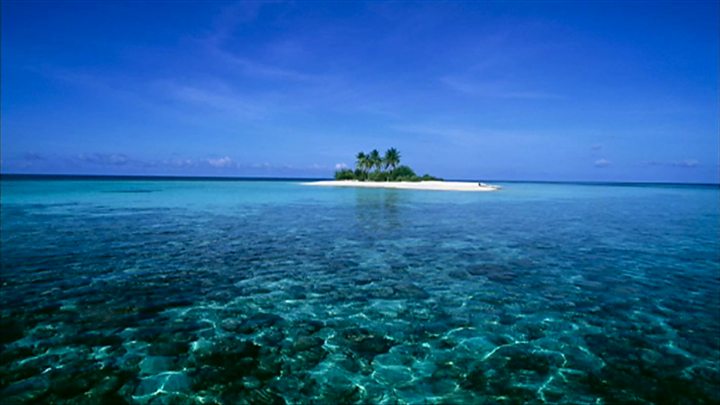
The ex-president of the Maldives has called from exile for other countries to intervene in a political crisis engulfing the island nation.
Mohamed Nasheed asked India to help release prisoners and the US to curb leaders’ financial transactions.
Turmoil began when current President Abdulla Yameen refused to release political dissidents, defying a court order and sparking protests.
“We must remove him from power,” Mr Nasheed said in a statement.
The government has declared a state of emergency and the chief justice of the Supreme Court has been detained with no further details given about his detention or charges.
The opposition has called his arrest and that of another judge a “purge”.
There has also been international condemnation of the government’s moves, with the US State Department expressing concern.
Meanwhile President Yameen gave a televised address to the country, saying judges had been plotting a coup.
- Political turmoil threatens ‘island paradise’
- Maldives leaves Commonwealth over democracy row
- Former Maldives leader ‘given UK asylum’
Maldives is a nation in the Indian Ocean, made up of 26 coral atolls and 1,192 individual islands, and tourism is a vital part of its economy.
Countries including India, the US, the UK and China have warned tourists to be cautious, especially near political rallies, although the UK government has advised that areas away from the capital, including the international airport, remained safe.
What did the ex-President ask for?
Mr Nasheed called on the Indian government to send an envoy, backed by its army, to release political detainees whose detention is at the heart of a worsening political crisis.
“We request a physical presence,” he said, after stating that he was speaking “on behalf of Maldivian people”.
He also asked the US to restrict Maldivian leaders’ transactions through US banks.
In a statement, Mr Nasheed added: “President Yameen has illegally declared martial law and overrun the state. We must remove him from power.”
Mr Nasheed was an opposition leader under a former government and became the country’s first democratically elected leader in 2008, but was ousted and jailed in 2012. He is currently thought to be in neighbouring Sri Lanka.
A Maldives minister to the UN, Jeffrey Salim Waheed, called his intervention “treason” and “the single biggest attempt to undermine the Maldives sovereignty”.
What has been happening?
Last week, the Supreme Court ordered the release of a group of opposition politicians. It also ruled that Mr Nasheed’s trial, held in 2015, had been unconstitutional.
The country’s police commissioner said he would enforce the court’s ruling – in response, the government of President Yameen sacked him.
The army has now been ordered to resist any attempt to impeach or remove President Yameen.
Police arrested Chief Justice Abdulla Saeed and another judge, Ali Hameed, hours after the government declared a state of emergency.
Former President Maumoon Abdul Gayoom, who has allied himself with the opposition, was detained at his home.
In a video posted online, the ex-president addressed his supporters (in Divehi), saying that he had not “done anything to warrant arrest” while urging them to “remain strong”.
The state of emergency allows security forces to make arrests, and means public gatherings are banned.
The opposition Jumhooree Party posted footage of soldiers at an opposition building.
On Tuesday morning, President Yameen said that judges had been plotting to overthrow him.
“I had to declare a national emergency because there was no other way to investigate these judges,” he said in a televised address. “We had to find out how thick the plot or coup was.”
Maldives media face closure and cyber-attacks
By BBC Monitoring
Media outlets in the Maldives have been affected as the country remains in a state of emergency.
Concerns over media freedom arose last week when the Maldives Broadcasting Commission warned that private TV stations would be shut down if their coverage was deemed to pose a “threat” to “national security”.
On the day the emergency was declared, the Maldives Independent news website tweeted: “Our website is under attack and currently inaccessible. Timing of attack coincided with State of Emergency declaration in #Maldives. We are currently unable to report on our website.”
As of 6 February the website appears to be unavailable. The outlet said on Twitter that its website was “still under attack” but added that they would “continue live tweeting”.
RaajjeTV, an opposition-aligned station also indicated that a shutdown was “imminent”, adding that they would “continue to work for the people of the Maldives till the last minute. We have no security.”
The Committee to Protect Journalists has said that “authorities in the Maldives must immediately stop trying to exert control over the media and access to information” and “abide by its constitutional commitment to the freedom of speech”.
What does this mean for tourists?
The political crisis comes during the country’s peak tourism season when tens of thousands of foreigners visit the Maldives’ tropical beaches.
China, the United States, India and the UK are among those issuing warnings to travellers in the Maldives.
The UK’s Foreign and Commonwealth Office said British nationals in the capital, Malé, should “exercise caution and avoid any protests or rallies”, but that outlying islands and resorts – and the international airport – were not affected.
Tourism was worth $2.7bn (£1.9bn) to the Maldivian economy in 2016. It is the biggest industry in the country – home to just 400,000 people – and could be hit hard if the crisis worsens and puts people off travelling.
Maldives ex-President Nasheed seeks help from India and US}

